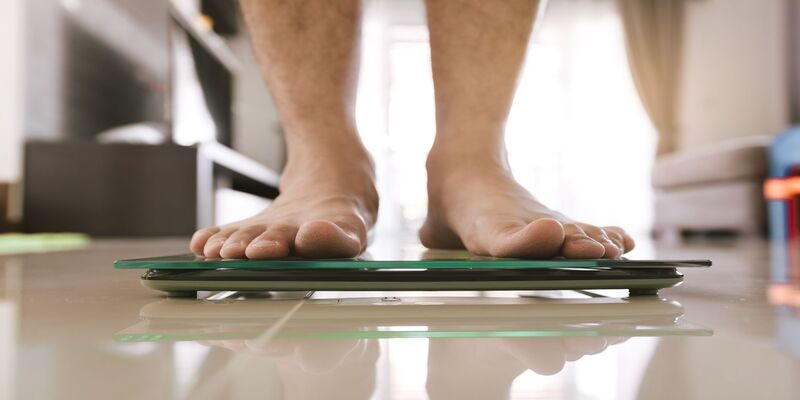
How To Manage Diabetes And Anxiety
Mar 03, 2023
Anxiety is a common mental health issue that can seriously affect a person's emotional and physical well-being. For individuals with diabetes, managing anxiety can be even more challenging, as anxiety can affect blood glucose levels, which is a significant concern for individuals with diabetes. Living with both anxiety and diabetes requires a comprehensive approach that addresses both conditions. Managing anxiety and diabetes requires a combination of self-care strategies and professional support. Self-care strategies can include creating a routine that includes regular exercise, healthy eating, getting enough sleep, and engaging in hobbies or activities that bring joy.
These activities can help reduce stress and improve overall well-being. Monitoring blood glucose levels regularly is also essential, as anxiety can affect blood glucose levels, and it is crucial to make any necessary adjustments to the treatment plan. Seeking professional support from a healthcare provider, counselor, or therapist is also essential to managing anxiety and diabetes. They can help develop a treatment plan tailored to individual needs and provide tools for managing anxiety, such as deep breathing exercises or mindfulness techniques.
In addition, they can provide emotional support and guidance, which can be invaluable when dealing with anxiety and diabetes. Learning coping skills, connecting with others with diabetes or anxiety, and practicing acceptance are also helpful strategies for managing anxiety and diabetes. Coping skills such as deep breathing exercises, progressive muscle relaxation, and mindfulness meditation can help reduce anxiety symptoms and improve overall well-being. Connecting with others with diabetes or anxiety can provide valuable support and reduce feelings of isolation.
Recognize The Relationship Between Anxiety And Diabetes
Recognizing the link between stress and diabetes is crucial. Anxiety can be caused by high blood sugar, and high blood sugar can be caused by anxiety. Anxiety and the negative effects of diabetes can feed into each other, leading to a downward spiral. Thus, learning the relationship between the two conditions is important to treat them better.
Seek Professional Support
Both diabetes and anxiety can be difficult to handle on your own, so getting help from a trained professional is important. Support and advice on handling diabetes and anxiety can be invaluable; a healthcare provider, counselor, or therapist can provide this. Tools for managing anxiety, such as deep breathing exercises and mindfulness techniques, can be provided, and a treatment plan tailored to your specific needs can be developed with their assistance.
Create A Self-Care Routine

The management of both diabetes and anxiety requires careful attention to one's physical and mental well-being. Creating a self-care routine is an excellent way to lessen pressure and boost health. Exercising frequently, eating well, getting enough sleep, and partaking in enjoyable activities are all good examples of self-care practices.
Monitor Blood Glucose Levels
When dealing with both diabetes and anxiety, regular blood glucose monitoring is essential. Keeping a close eye on your blood sugar levels and making any necessary adjustments to your treatment plan is essential if you suffer from anxiety. Keeping a log of your blood sugar levels is a great way to keep both your diabetes and your anxiety under control.
Learn Coping Skills
Anxiety and stress can be controlled with the help of learned coping mechanisms. Deep breathing exercises, progressive muscle relaxation, and mindful meditation are just a few of the techniques that have proven useful. Repeated practice of these methods has been shown to alleviate anxiety and boost health.
Connect With Others
When you reach out to others who share your experiences with diabetes or anxiety, you gain a valuable source of support and lessen the likelihood of feeling alone. When you join a support group or online community, you gain access to a safe place to talk about your feelings and receive encouragement from others in similar situations. Sharing your condition with loved ones can be beneficial as they can provide both emotional and material support.
Practice Acceptance

Acceptance of one's condition is crucial when dealing with diabetes and anxiety. Reduce your stress and worry by accepting your condition and making it a part of your life. It's also important to keep in mind that you're on a journey to better diabetes and anxiety management and that there will be good days and bad days along the way.
Conclusion
In conclusion, managing diabetes and anxiety requires a holistic approach considering the patient's physical and mental well-being. To effectively manage both conditions, it is important to recognize the link between them, seek professional help, establish a self-care routine, monitor blood glucose levels, acquire coping strategies, build social support networks, and practice acceptance. Keeping anxiety and diabetes under control is a process; there will be good and bad days. People can lead a normal, productive life despite anxiety and diabetes if they have the necessary resources.





